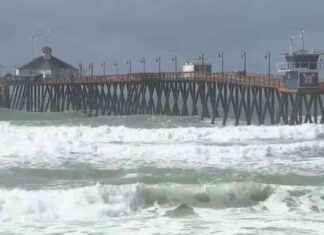Hours before his resignation was made official, under the cover of night, the controversial president of Sri Lanka, Gotabaya Rajapaksa, fled on a military plane bound for the Maldives. His departure is a milestone after weeks of widespread protests against him for his economic mismanagement, which last Saturday crystallized in the assault by thousands of protesters on the presidential residence and other government buildings still occupied. After his departure, the acting Prime Minister, Ranil Wickremesinghe, has declared a state of emergency to contain the protests.
The 73-year-old president, his wife and two bodyguards left the country aboard an Antonov-32 plane that left the country’s main international airport for the city of Male, the capital of Maldives, the Sri Lankan Air Force confirmed.
“Their passports were stamped and they boarded the special air force flight,” an immigration official said. His departure was also confirmed later by the prime minister’s office.
The security forces used tear gas to try to disperse the hundreds of protesters who planted today outside the prime minister’s office. The demonstrations broke out again after it became known that the president had left the country
Neither the government nor the security forces had acted against the protesters during the last four days, since the assault on official facilities, and the subsequent announcement of the president’s resignation.
Rajapaksa later landed in Malé aboard the military plane, although it is unknown where he was transferred shortly after amid a strong police cordon, according to information from airport officials collected by the media. It is believed that the president intends to travel from there to a third country, but the details are unknown.
Rajapaksa fled his official residence over the weekend shortly before a large group of protesters stormed the presidential compound in protest at his mismanagement, which has bankrupted the country and triggered shortages of food, fuel and other essential goods. need. Colombo defaulted on its $51 billion foreign debt in April and is in talks with the IMF over a possible bailout.
On Monday night, he already tried unsuccessfully to board a plane for Dubai, but immigration officials at the capital’s airport denied him access to the VIP lounge to stamp his passport when he wanted to avoid the terminal open to the public for fear of the reaction of the population.
As a result, he and his wife missed four flights to the United Arab Emirates and had to return to a nearby military base to try to leave again, this time successfully. He is believed to be trying to seek refuge abroad before his resignation, due to take effect on Wednesday, deprives him of immunity from office and risks arrest.
In addition to the president, several members of the Rajapaksa family, the clan that has dominated Sri Lankan politics in recent decades, have also tried to leave the country due to popular uprisings against them.
On Tuesday, airport authorities prevented Basil Rajapaksa, the president’s younger brother and former finance minister, who is also accused of corruption, from leaving by plane to Dubai. Even so, BBC sources assured on Tuesday night that the politician had managed to leave the country for the United States, a country from which he has dual nationality.
For some analysts, the departure of the president represents a great victory for the protesters, who consider him the main person responsible for the economic and institutional crisis that the nation of 22 million inhabitants is going through.
However, there are also those who regret that the president has gotten away with it without facing major consequences. “I’m not happy, I should be in jail. He ruined the country and stole our money,” said Malik D’Souza, a 25-year-old protester who has been participating in the protests for three months.
Like many others, the young man acknowledged having voted for Rajapaksa in 2019, believing that his military experience – he was in charge of ending manu militari with the Tamil Tigers guerrillas in 2009 – would keep the country safe after the bomb attacks inspired by the Islamic State that killed more than 260 people in the country that year.
When Rajapaksa’s resignation materializes, first announced by parliament and confirmed soon after by the prime minister’s office, an interim all-party national unity government is expected to take power. The new president will be elected on July 20 by the legislature, and the leader of the largest opposition party, Sajith Premadasa, has already advanced his intention to run for office. In principle, that interim government would function for between six and eight months until the country can organize parliamentary elections.








